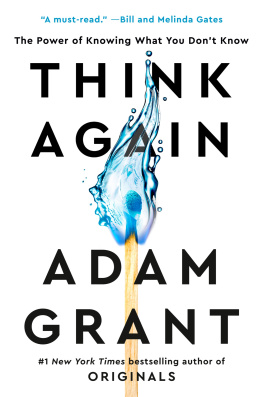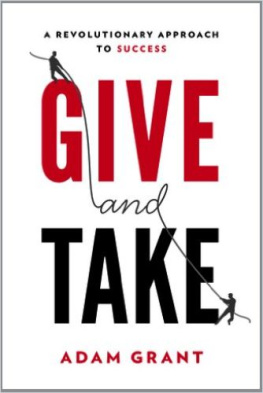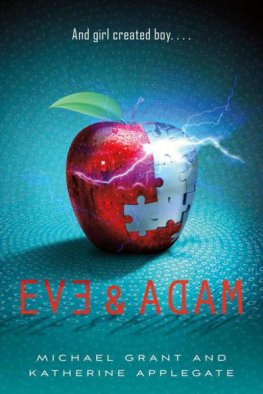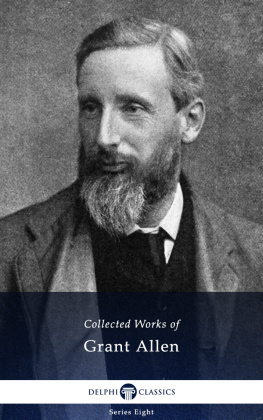Adam Grant - Think Again: The Power of Knowing What You Dont Know
Here you can read online Adam Grant - Think Again: The Power of Knowing What You Dont Know full text of the book (entire story) in english for free. Download pdf and epub, get meaning, cover and reviews about this ebook. year: 2021, publisher: Penguin Publishing Group, genre: Detective and thriller. Description of the work, (preface) as well as reviews are available. Best literature library LitArk.com created for fans of good reading and offers a wide selection of genres:
Romance novel
Science fiction
Adventure
Detective
Science
History
Home and family
Prose
Art
Politics
Computer
Non-fiction
Religion
Business
Children
Humor
Choose a favorite category and find really read worthwhile books. Enjoy immersion in the world of imagination, feel the emotions of the characters or learn something new for yourself, make an fascinating discovery.
- Book:Think Again: The Power of Knowing What You Dont Know
- Author:
- Publisher:Penguin Publishing Group
- Genre:
- Year:2021
- Rating:5 / 5
- Favourites:Add to favourites
- Your mark:
- 100
- 1
- 2
- 3
- 4
- 5
Think Again: The Power of Knowing What You Dont Know: summary, description and annotation
We offer to read an annotation, description, summary or preface (depends on what the author of the book "Think Again: The Power of Knowing What You Dont Know" wrote himself). If you haven't found the necessary information about the book — write in the comments, we will try to find it.
Adam Grant: author's other books
Who wrote Think Again: The Power of Knowing What You Dont Know? Find out the surname, the name of the author of the book and a list of all author's works by series.
Think Again: The Power of Knowing What You Dont Know — read online for free the complete book (whole text) full work
Below is the text of the book, divided by pages. System saving the place of the last page read, allows you to conveniently read the book "Think Again: The Power of Knowing What You Dont Know" online for free, without having to search again every time where you left off. Put a bookmark, and you can go to the page where you finished reading at any time.
Font size:
Interval:
Bookmark:
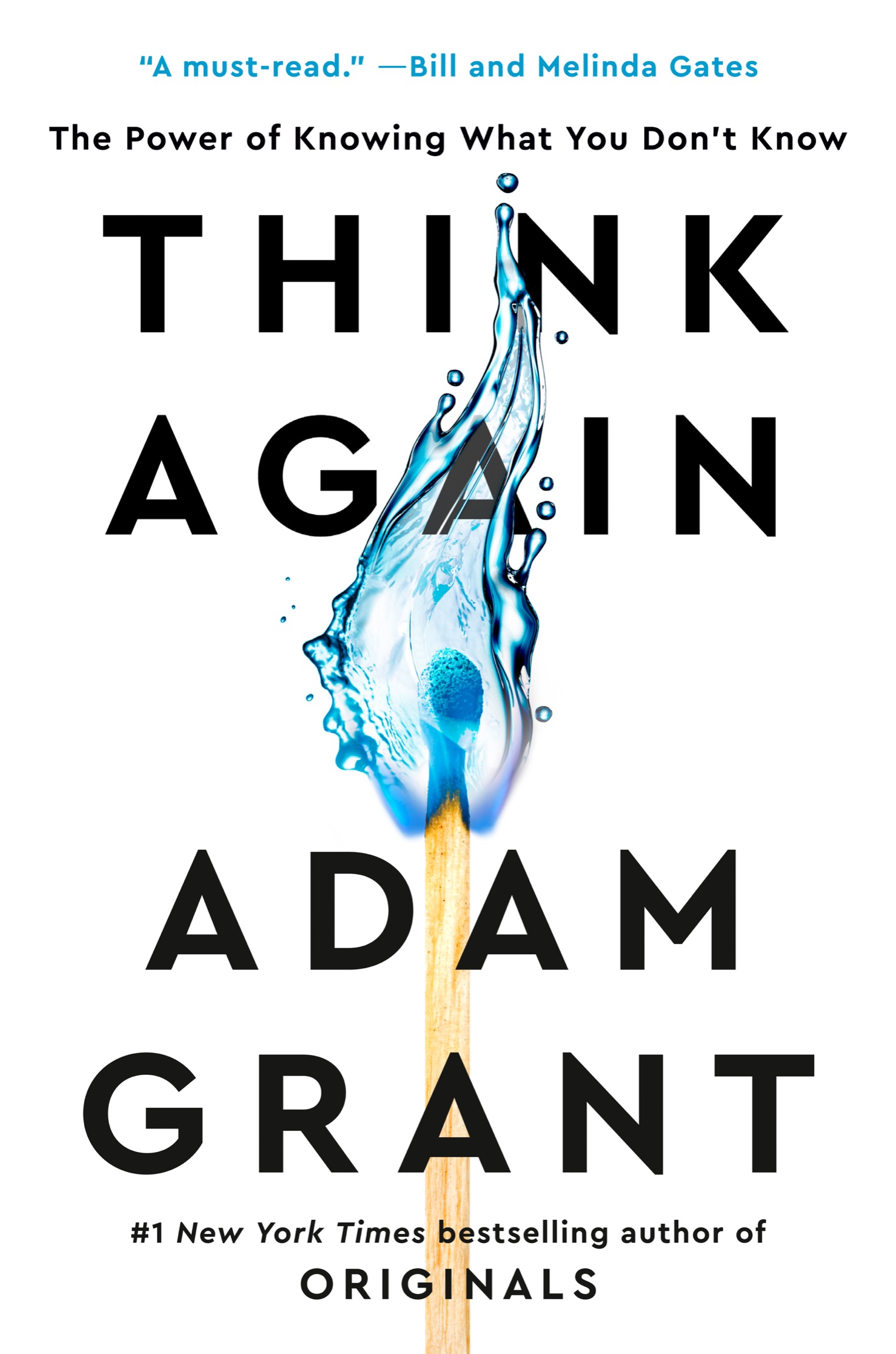
Give and Take
Originals
Option B
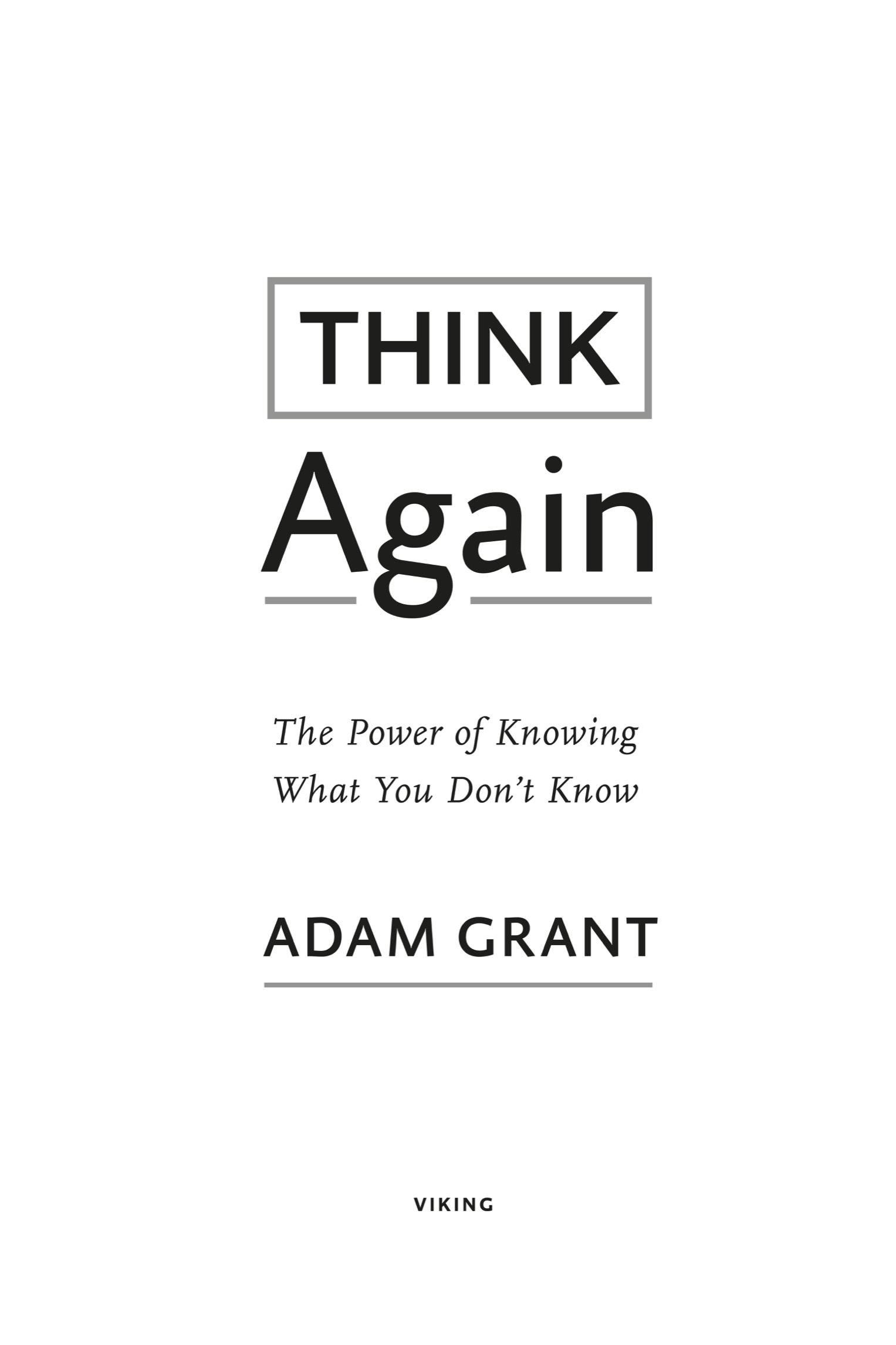
VIKING
An imprint of Penguin Random House LLC
penguinrandomhouse.com
Copyright 2021 by Adam Grant
Penguin supports copyright. Copyright fuels creativity, encourages diverse voices, promotes free speech, and creates a vibrant culture. Thank you for buying an authorized edition of this book and for complying with copyright laws by not reproducing, scanning, or distributing any part of it in any form without permission. You are supporting writers and allowing Penguin to continue to publish books for every reader.
Owing to limitations of space, image credits can be found on .
Unless otherwise noted, charts illustrated by Matt Shirley.
library of congress cataloging-in-publication data
Names: Grant, Adam M., author.
Title: Think again : the power of knowing what you dont know / Adam Grant.
Description: [New York, New York] : Viking, [2021] | Includes bibliographical references and index.
Identifiers: LCCN 2020035237 (print) | LCCN 2020035238 (ebook) | ISBN 9781984878106 (hardcover) | ISBN 9781984878113 (ebook) |
ISBN 9780593298749 (international edition)
Subjects: LCSH: Thought and thinking. | Questioning. | Knowledge, Theory of. | Belief and doubt.
Classification: LCC BF441 .G693 2021 (print) | LCC BF441 (ebook) | DDC 153.4/2dc23
LC record available at https://lccn.loc.gov/2020035237
LC ebook record available at https://lccn.loc.gov/2020035238
Book design by Daniel Lagin
While the author has made every effort to provide accurate telephone numbers, internet addresses, and other contact information at the time of publication, neither the publisher nor the author assumes any responsibility for errors or for changes that occur after publication. Further, the publisher does not have any control over and does not assume any responsibility for author or third-party websites or their content.
pid_prh_5.6.1_c0_r0
To Kaan, Jeremy, and Bill,
My three oldest friendsone thing I wont rethink
Prologue

After a bumpy flight, fifteen men dropped from the Montana sky. They werent skydivers. They were smokejumpers: elite wildland firefighters parachuting in to extinguish a forest fire started by lightning the day before. In a matter of minutes, they would be racing for their lives.
The smokejumpers landed near the top of Mann Gulch late on a scorching August afternoon in 1949. With the fire visible across the gulch, they made their way down the slope toward the Missouri River. Their plan was to dig a line in the soil around the fire to contain it and direct it toward an area where there wasnt much to burn.
After hiking about a quarter mile, the foreman, Wagner Dodge, saw that the fire had leapt across the gulch and was heading straight at them. The flames stretched as high as 30 feet in the air. Soon the fire would be blazing fast enough to cross the length of two football fields in less than a minute.
By 5:45 p.m. it was clear that even containing the fire was off the table. Realizing it was time to shift gears from fight to flight, Dodge immediately turned the crew around to run back up the slope. The smokejumpers had to bolt up an extremely steep incline, through knee-high grass on rocky terrain. Over the next eight minutes they traveled nearly 500 yards, leaving the top of the ridge less than 200 yards away.
With safety in sight but the fire swiftly advancing, Dodge did something that baffled his crew. Instead of trying to outrun the fire, he stopped and bent over. He took out a matchbook, started lighting matches, and threw them into the grass. We thought he must have gone nuts, one later recalled. With the fire almost on our back, what the hell is the boss doing lighting another fire in front of us? He thought to himself: That bastard Dodge is trying to burn me to death. Its no surprise that the crew didnt follow Dodge when he waved his arms toward his fire and yelled, Up! Up this way!
What the smokejumpers didnt realize was that Dodge had devised a survival strategy: he was building an escape fire. By burning the grass ahead of him, he cleared the area of fuel for the wildfire to feed on. He then poured water from his canteen onto his handkerchief, covered his mouth with it, and lay facedown in the charred area for the next fifteen minutes. As the wildfire raged directly above him, he survived in the oxygen close to the ground.
Tragically, twelve of the smokejumpers perished. A pocket watch belonging to one of the victims was later found with the hands melted at 5:56 p.m.
Why did only three of the smokejumpers survive? Physical fitness might have been a factor; the other two survivors managed to outrun the fire and reach the crest of the ridge. But Dodge prevailed because of his mental fitness.

When people reflect on what it takes to be mentally fit, the first idea that comes to mind is usually intelligence. The smarter you are, the more complex the problems you can solveand the faster you can solve them. Intelligence is traditionally viewed as the ability to think and learn. Yet in a turbulent world, theres another set of cognitive skills that might matter more: the ability to rethink and unlearn.
Imagine that youve just finished taking a multiple-choice test, and you start to second-guess one of your answers. You have some extra timeshould you stick with your first instinct or change it?
About three quarters of students are convinced that revising their answer will hurt their score. Kaplan, the big test-prep company, once warned students to exercise great caution if you decide to change an answer. Experience indicates that many students who change answers change to the wrong answer.
With all due respect to the lessons of experience, I prefer the rigor of evidence. When a trio of psychologists conducted a comprehensive review of thirty-three studies, they found that in every one, the majority of answer revisions were from wrong to right. This phenomenon is known as the first-instinct fallacy.
In one demonstration, psychologists counted eraser marks on the exams of more than 1,500 students in Illinois. Only a quarter of the changes were from right to wrong, while half were from wrong to right. Ive seen it in my own classroom year after year: my students final exams have surprisingly few eraser marks, but those who do rethink their first answers rather than staying anchored to them end up improving their scores.
Of course, its possible that second answers arent inherently better; theyre only better because students are generally so reluctant to switch that they only make changes when theyre fairly confident. But recent studies point to a different explanation: its not so much changing your answer that improves your score as considering whether you should change it.
We dont just hesitate to rethink our answers. We hesitate at the very idea of rethinking. Take an experiment where hundreds of college students were randomly assigned to learn about the first-instinct fallacy. The speaker taught them about the value of changing their minds and gave them advice about when it made sense to do so. On their next two tests, they still werent any more likely to revise their answers.
Font size:
Interval:
Bookmark:
Similar books «Think Again: The Power of Knowing What You Dont Know»
Look at similar books to Think Again: The Power of Knowing What You Dont Know. We have selected literature similar in name and meaning in the hope of providing readers with more options to find new, interesting, not yet read works.
Discussion, reviews of the book Think Again: The Power of Knowing What You Dont Know and just readers' own opinions. Leave your comments, write what you think about the work, its meaning or the main characters. Specify what exactly you liked and what you didn't like, and why you think so.

